Entrepreneurship: Zuo Bruno, breaking ground in IT

Interviewed by Nfor Hanson Nchanji
This is the second time I have interviewed Zuo Bruno. The first time was when I was Editor in Chief at Equinoxe Television while anchoring the 6 PM prime time news. Mr. Zuo took advantage of the Internet shutdown in 2017 to introduce ways of communicating without the internet. Now in 2022, I wanted to find out how his journey has been, five years later. The discussion was amazing. Take a read!
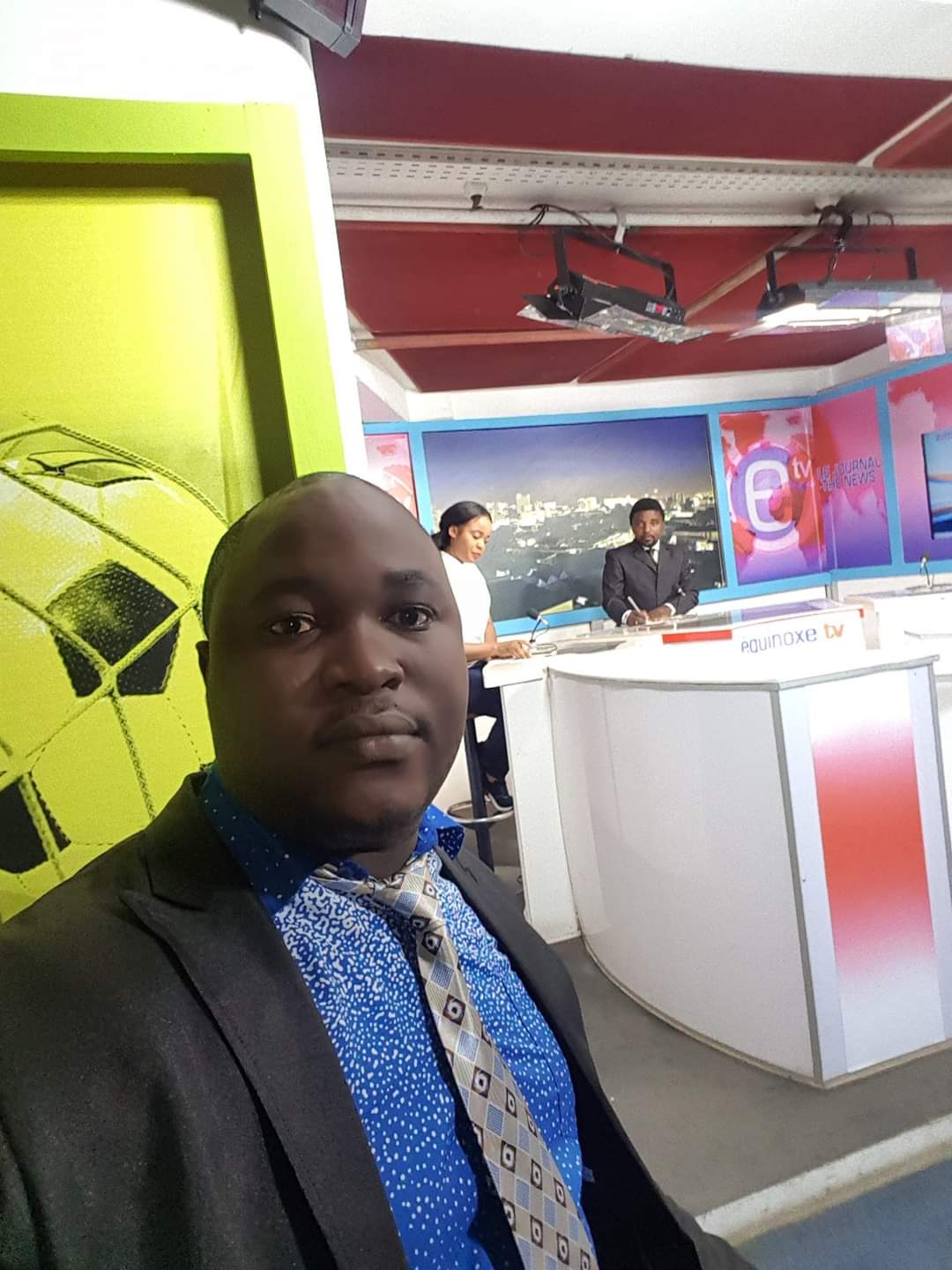
Zuo Bruno, taking a selfie in the studios of Equinoxe Television. Seated on the anchor’s chair is Nchanji Hanson Nfor, assisted by Mimi Mefo. ( 2017)
Nchanji: Thank you for accepting to answer a few questions, I know we have spoken before but for the sake of those reading or coming across your name for the first time, what inspired you to become an entrepreneur, and how did you get started?
Bruno: Well, let me tell you a little more about my journey. As a child, I was always curious and loved to explore new things. I was always interested in problem-solving and finding ways to make things work better. Growing up, my dad had always dreamed of being a pilot himself, but for some reason, it didn’t work out for him, so like most dads, he wanted his son – Me, to be that pilot. So, he did everything he could to give me the best education possible.
I pursued a degree in Geography and Geographic Information Systems at the university, but I quickly realized that it wasn’t fulfilling my desire for problem-solving. That’s when I started teaching myself how to code, and it was like a whole new world opened up for me. Coding was the perfect tool for me to put my problem-solving skills to use, and I found it incredibly rewarding, teaching myself to code was not an easy task, I remember, I had to spend about 2000 CFA (about 3.5 USD) a day just for internet access. That was all the money I had in the world. But this goal of understanding this new tool surpassed anything. There were times when I will sleep in cyber cafes so that I could get access to the internet and in exchange I will clean the place in the morning.
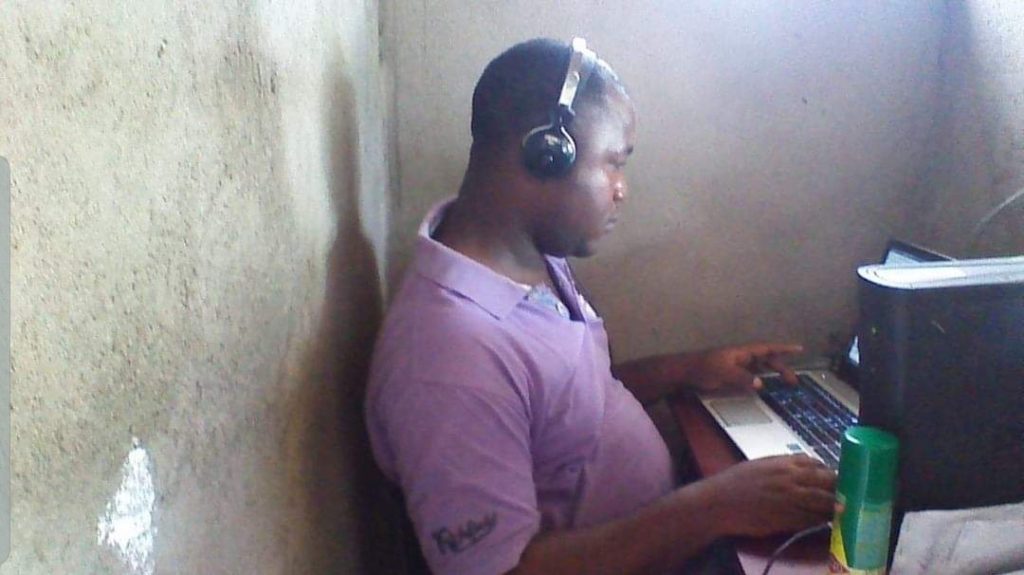
Zuo Bruno, during his humble beginnings, spent time in a Cyber Café in Limbe, South West of Cameroon.
After I graduated with my degree in Geography, I knew that I wanted to pursue a career in programming and entrepreneurship. It was a bit of a risky move, especially in Cameroon where starting a business can be a daunting task, but I decided to take the leap and start my own business.
I faced many challenges when starting my business. The biggest one was getting funding to get started. It’s not easy to find investors in Cameroon, especially for a tech startup. But I didn’t let that discourage me. I worked hard and found creative ways to bootstrap my business. I started with small projects, and as I gained more clients and revenue, I reinvested back into the business. Ahhhh, I remember vividly, my drive. It was not the money, it was pure passion and love for humanity – I have sought to keep that original burning zeal to this day.
Today, my businesses offer a variety of services to clients, including Cyber Security Services (by Zuoix LLC), Fleet management (KamWe LLC), Uber-Like Call services (Sebenza), Government Security Papers (Zano Papper LLC), and Maybe, Africa’s First True Space company and the world’s First Space company to revolutionarise the way we communicate while solving climate change (AirDrix). Our clients range from small startups to large corporations, and we’ve been fortunate enough to build a solid reputation in the industry.
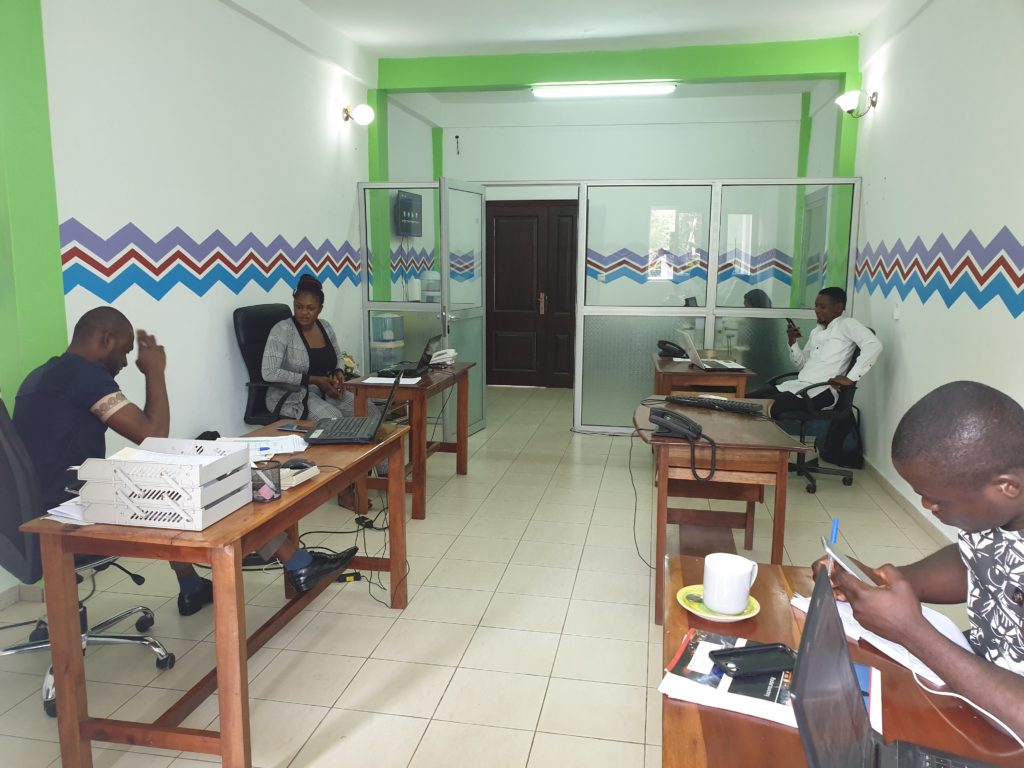
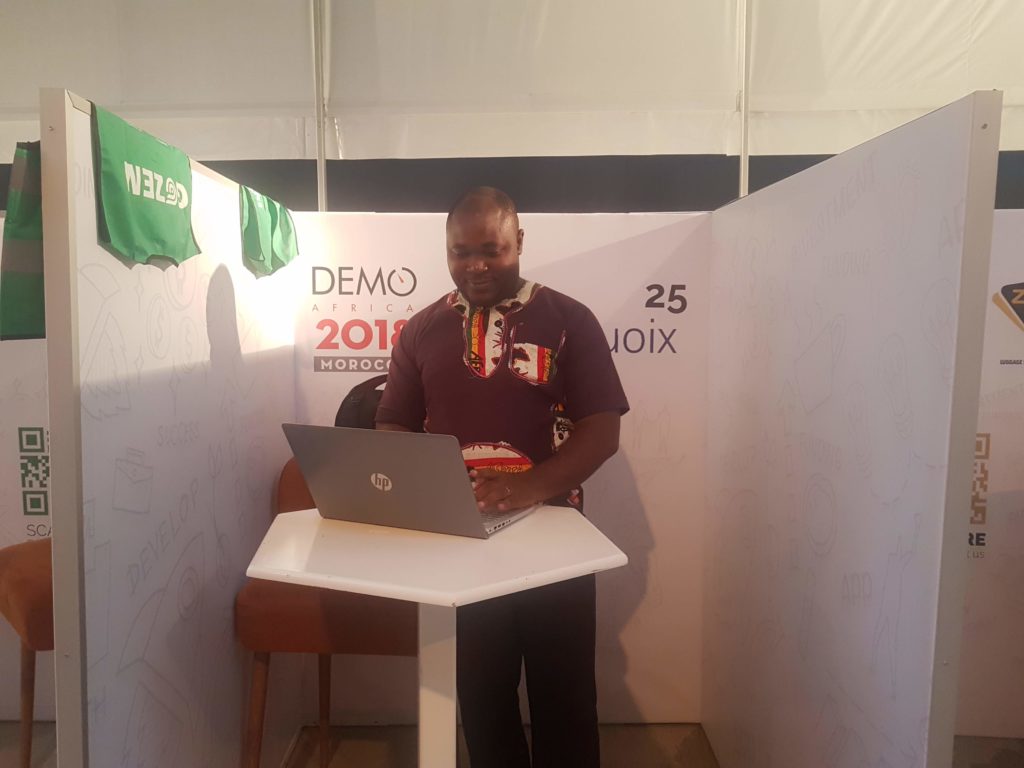
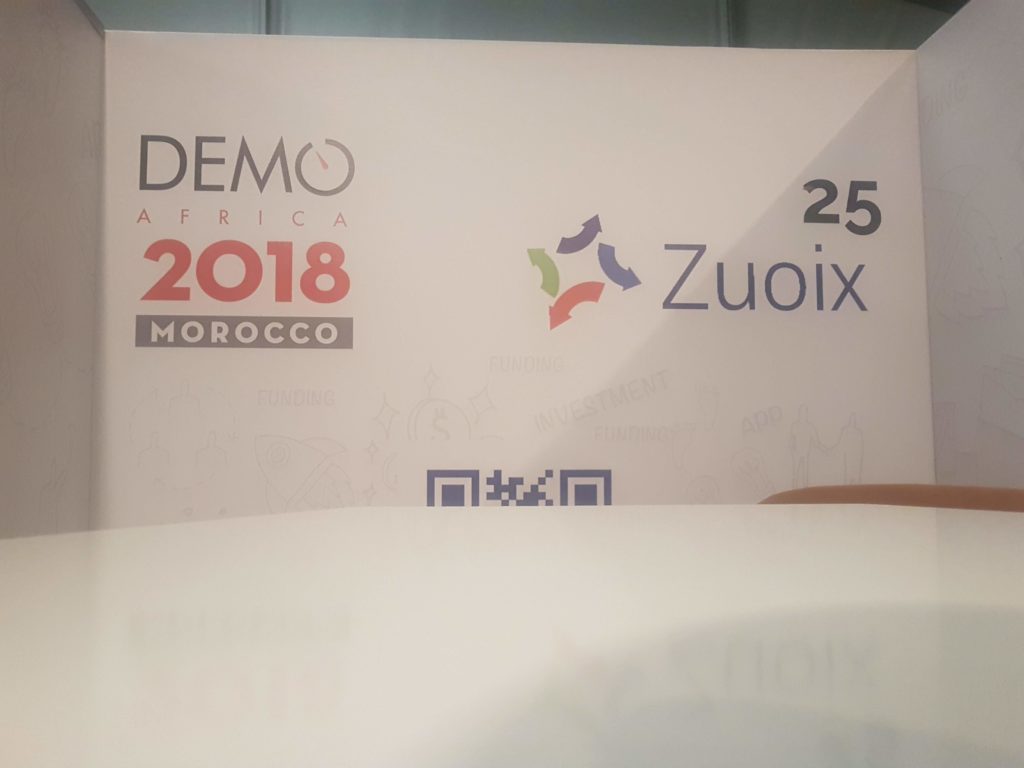
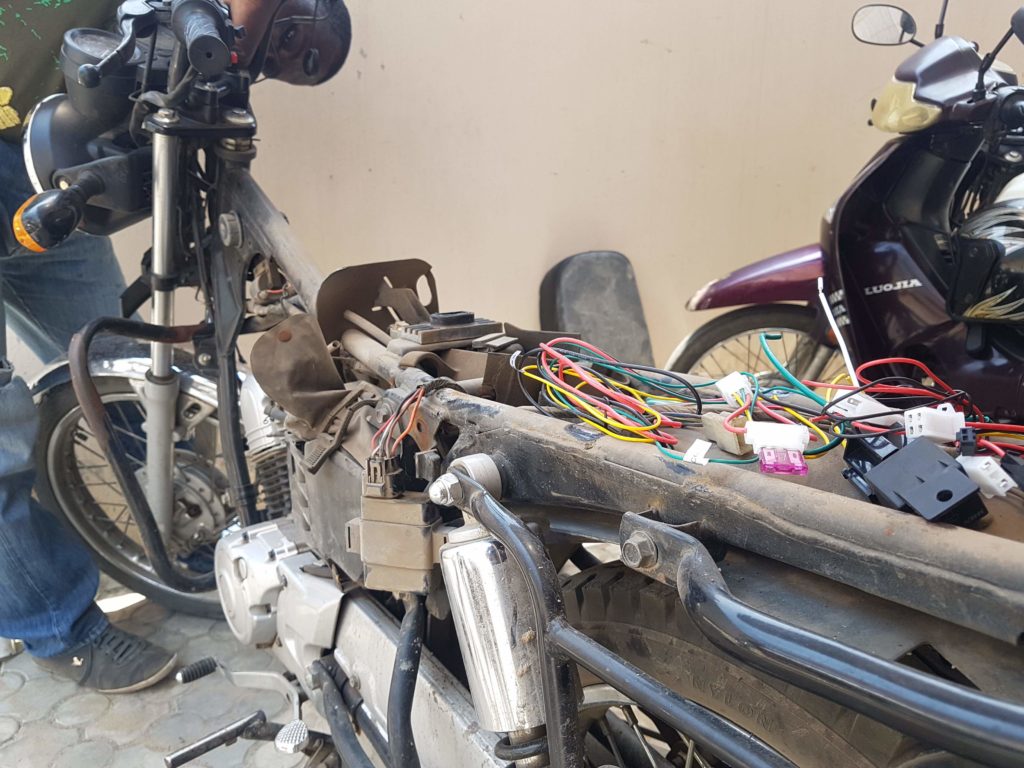
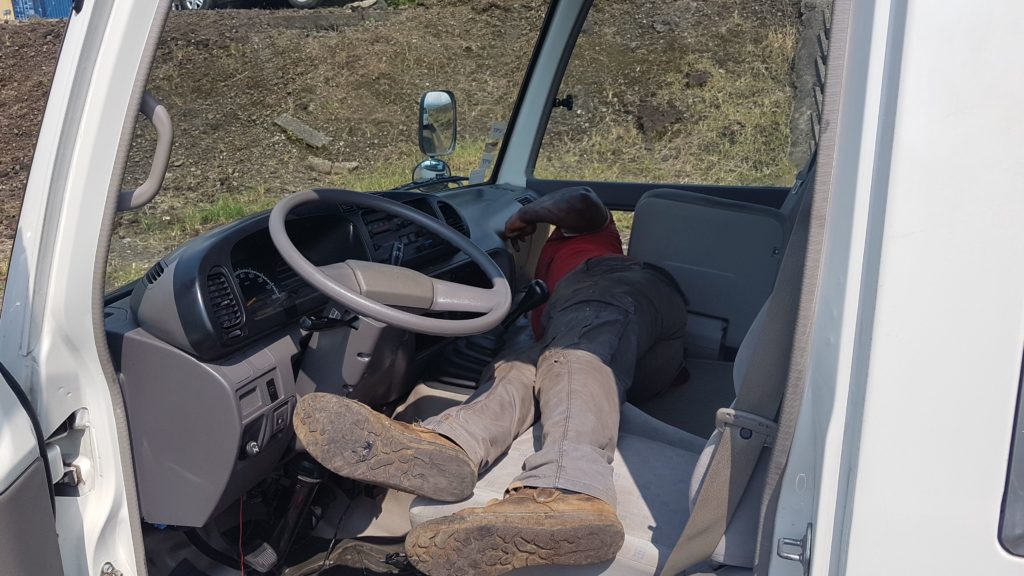
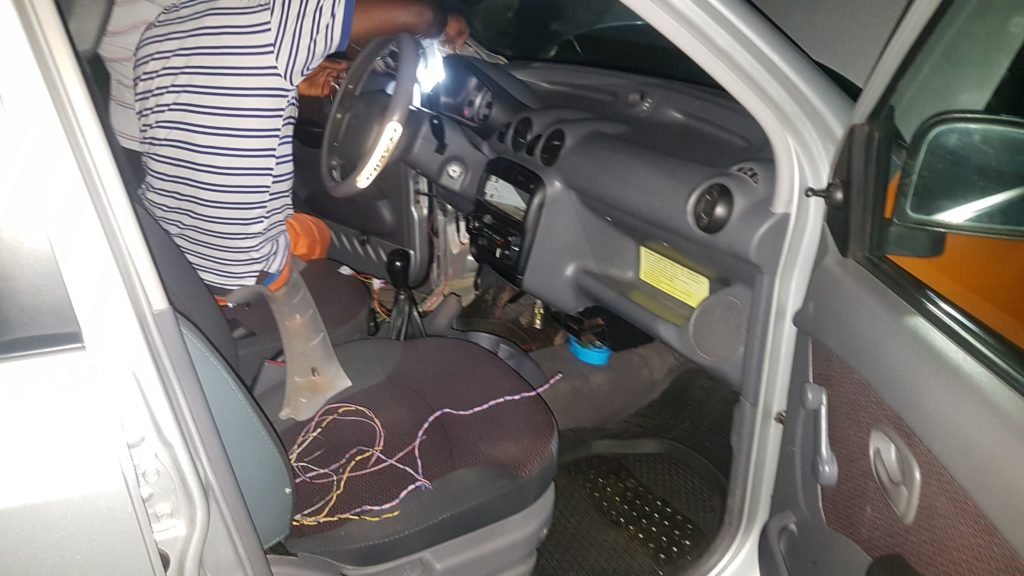
An overview of some services provided by Zuo and his team. The first picture shows his office in Cameroon.
Nchanji: That sounds interesting. Now, I know that starting from nowhere is challenging. What are the main challenges you faced when starting your business, and how did you overcome them?
Bruno: As I look back on my journey as an entrepreneur, my heart is filled with a range of emotions. It was a path full of challenges, setbacks, and moments of doubt. But it was also a path that taught me about the power of resilience, perseverance, and self-belief.
One of the greatest challenges I faced was the rejection I received from friends and family. My father, in particular, could not understand why I chose to pursue entrepreneurship. To him, it was a risky and uncertain career choice, and he often expressed his disappointment in my decision.
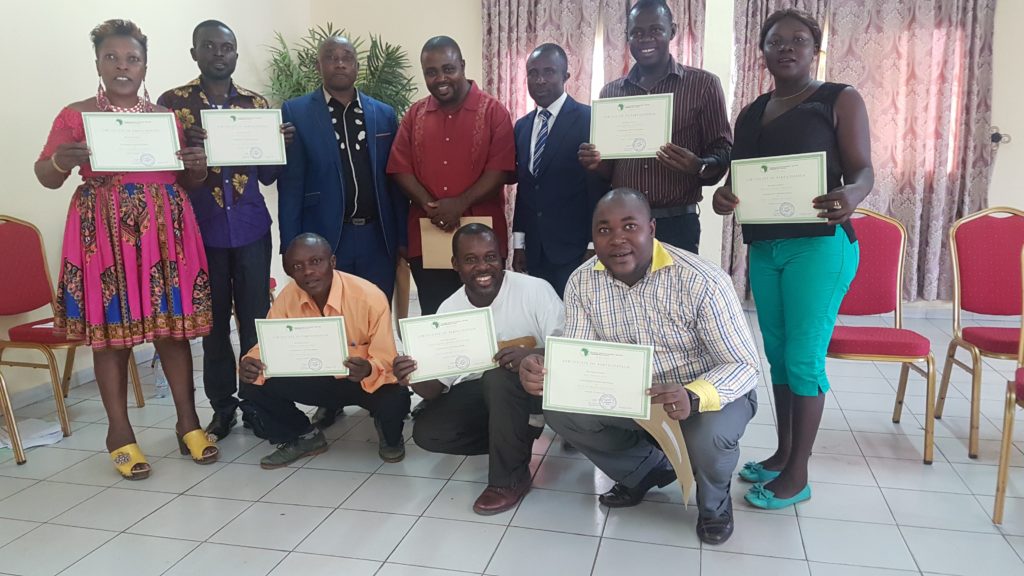
Learning never ends with Zuo Bruno. Here with certificates of participation.
The rejection I felt from my father was one of the hardest things I ever had to face. I had always wanted to make him proud, to show him that I was capable of achieving great things. But his lack of support made me feel like a failure. It was a constant source of emotional pain and self-doubt.
To make matters worse, my friends were also skeptical of my decision to start my own business. They told me that I was wasting my time and talent, and that I should be using my degree and certificates in a more traditional career. Their lack of belief in me made me feel like I was going against the grain like I was fighting an uphill battle that I was destined to lose.
These feelings of rejection and doubt were overwhelming at times. There were moments when I would sit on my bed and just break down, torn between the reality that my business might not succeed and my stubborn determination to keep going. I would walk around my room, having a heated argument within myself, trying to convince myself that giving up was the right thing to do. And yet, I knew deep down that giving up was not an option.
Despite these emotional challenges, I refused to give up on my dreams. I knew that I had a passion for problem-solving and coding that was too strong to ignore. I turned to my faith and my inner strength to find the courage to keep going, to keep pushing forward even in the face of rejection.
Another challenge I faced was environmental factors. I was new to the entrepreneurial scene, and I struggled to find the right market for my services. It took me a long time to understand that creating solutions is one thing, but selling them is another. The Cameroonian landscape lacked policies to promote startups like mine, and coming from a minority anglophone zone only made things more difficult. But I refused to let these challenges define me. Instead, I repeated to myself a mantra of “Forward Ever, Backward, Never.” I knew that if I could just keep moving forward if I could just keep believing in myself and my abilities, I could achieve great things.
Looking back on my journey, I realize that the rejection and doubt I faced were not just challenges, but also opportunities for growth and learning. They taught me the importance of resilience, perseverance, and self-belief. They showed me that sometimes, the road to success is not a straight line, but rather a winding path full of obstacles and setbacks.
Nchanji: Let’s talk about your businesses. How do you come up with your ideas, and what inspires you to pursue them?
Bruno: As an entrepreneur, this is probably one of the questions I have been asked the most and to be honest, there’s no easy answer to that question. For me, it’s a combination of things.
First and foremost, I love to read. I read on almost all topics, from religion to science fiction to history. I find that reading not only broadens my knowledge, but it also sparks my imagination. Reading about different people, cultures, and ideas helps me to see the world in a new light and inspires me to think outside the box. Another source of inspiration for me is travel. Whenever I visit a new place, I make it a point to meet the people and try to see life through their eyes. I listen to their stories, and understand their fears, problems, aspirations, and dreams. And before I know it, an idea pops up.
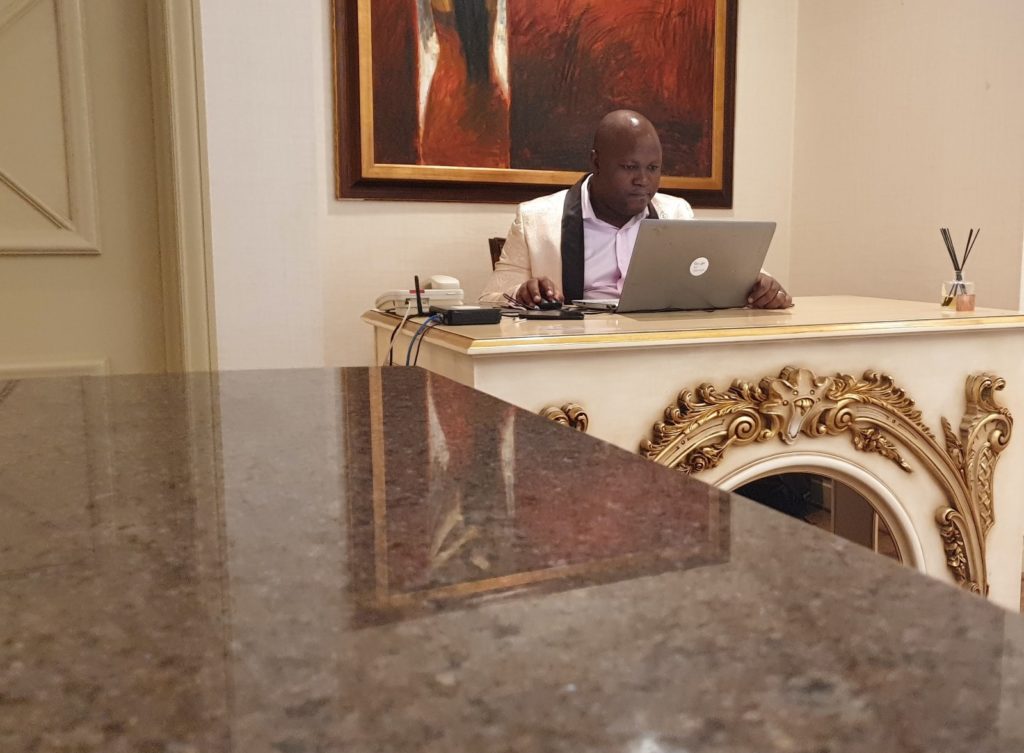
Zuo Bruno in his South African office.
But coming up with an idea is just the beginning. The real work is in refining that idea and turning it into a viable product or service. That’s where the “idea romance” phase comes in. This is the stage where I try to refine the idea, looking for what’s good, or not so good about it. I imagine the idea as a product in use, thinking about how it will solve a problem or make someone’s life easier.
It’s not always an easy process, and there are definitely moments of frustration and doubt. But I’ve learned to trust my instincts and to have faith in my ability to create something meaningful and valuable. I like to think of it as a lightbulb moment. You know, the classic image of a lightbulb turning on above someone’s head when they have an idea? Except in my case, it’s more like a whole bunch of lightbulbs turning on at once, illuminating a world of possibilities. It’s a bit chaotic, but it’s also exhilarating. And at the end of the day, that’s what entrepreneurship is all about taking an idea and turning it into something real and impactful.
Nchanji: Let me ask you this, you mentioned that AirDrix will be a space company that solves communication and climate change. Can you tell me more about your vision for AirDrix and how you plan to achieve your goals?
Bruno: As an entrepreneur who is passionate about solving some of the world’s most pressing problems, I believe that innovation and creativity are key to achieving these goals. And that’s where AirDrix comes in.
At AirDrix, our vision is to create a space company that solves communication and climate change. We believe that if people can communicate effectively, almost any problem can be solved. And we also believe that climate change is one of the greatest challenges facing our planet today.
So how do we plan to achieve our vision? Our plan is to create a series of nano-satellites that will be launched into a lower orbit. These satellites will allow mobile devices to communicate almost for free, breaking down barriers to communication and creating a more connected world. But our mission doesn’t stop there. We also want to tackle climate change by using our technology to create clouds over arid and semi-arid regions. How will we do this? Well, it all comes down to cloud seeding. Cloud seeding is a process that involves adding materials to clouds in order to encourage rainfall. It’s a technique that has been around for decades, but it’s never been done on the scale that we’re planning. Our rockets will carry out cloud seeding as they re-enter the Earth’s atmosphere, using a unique formula that we’ve developed ourselves.
This formula is the result of extensive research and experimentation. We’ve studied the physics and climatology of cloud formation in order to develop a solution that we believe will work. And we’re confident that it will. By creating clouds over arid and semi-arid regions, we hope to bring back greenery to areas that have long been deserted wastelands. We believe that this will not only benefit the environment but also the people who live in these regions.
Of course, there are many challenges that we’ll need to overcome in order to achieve our goals. The physics and engineering of rocket launches and space travel are incredibly complex, and there are many regulatory and safety considerations to take into account. But we’re determined to make this vision a reality. We believe that the potential benefits of our technology are too great to ignore. By creating a more connected world and combating climate change, we hope to make a positive impact on the lives of people around the globe.
Nchanji: “You have been celebrated as a renowned Pan-African tech genius, and recently you were awarded the African Achievers Award in London in 2022. While many consider you a champion for the African continent, others have criticized you for being too focused on Africans and potentially racist. What is your response to these criticisms, and how do you see your work contributing to a more equitable and inclusive world?”
Bruno: I will be honest, I wasn’t expecting that at all. I do not consider myself a racist in any way, shape, or form. I firmly believe that the color of our skin has no influence on who we are or what we can achieve. My focus on Africa is not because of a bias or preference for one race or ethnicity over another, but because of my deep understanding of the region and its unique challenges.
If I were to live in Australia or Europe for a period of time, you would notice a shift in my focus and solutions. This is because my work is informed by the environment in which I operate and the problems that are most pressing in that particular context. So to suggest that I am a racist because I focus on Africa’s problems is not only inaccurate, but it overlooks the fact that my work is guided by a commitment to solving problems and making a positive impact on the world.
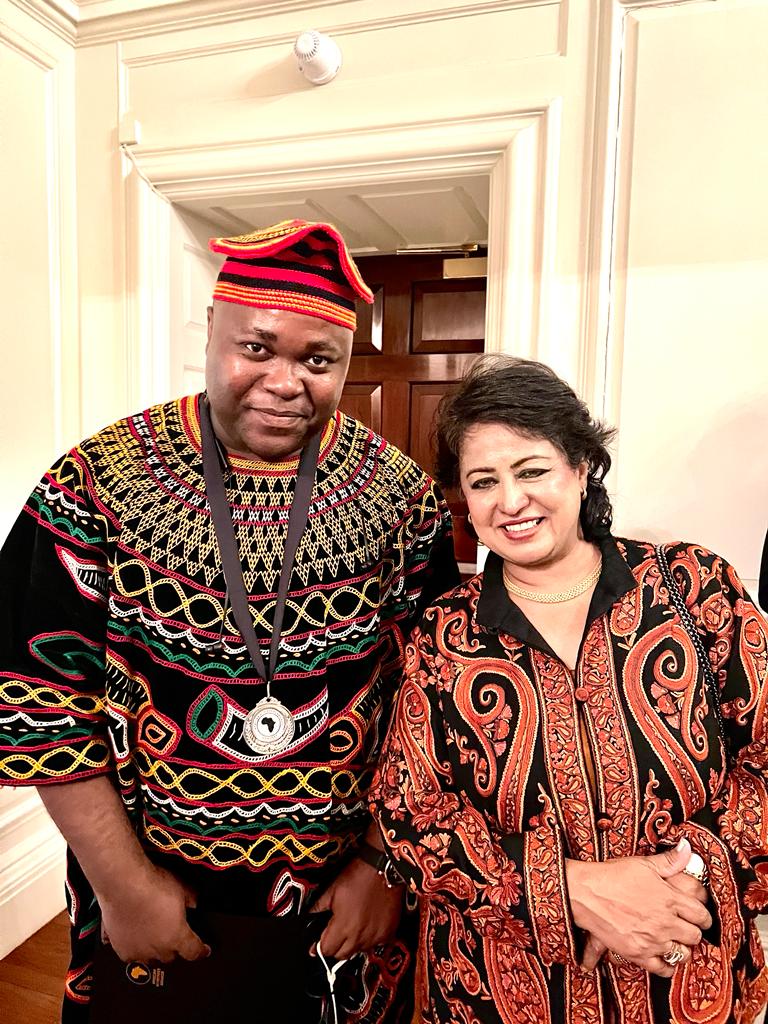
Zuo Bruno ( Awardee , African Achievers Award 2022) posing with former Mauritius President.
Ultimately, I see myself as part of one global family – humankind. We are all in this together, facing the same challenges and opportunities. My work as a tech entrepreneur is not about promoting one race or ethnicity over another, but about leveraging technology and innovation to solve problems and create a more equitable and inclusive world.
I believe that technology has the power to transform the world for the better, and I am committed to using my skills and knowledge to make a positive impact wherever and whenever possible. So while there may be those who criticize my work as being too focused on Africa or potentially racist, I remain focused on my mission to create positive change and make the world a better place for all.
Nchanji: Lastly, How do you see the future of entrepreneurship and business development in Cameroon?
Bruno: I believe that the future of entrepreneurship and business development in Cameroon is bright. Despite the challenges we face, such as lack of access to funding, infrastructure, and supportive policies, there are many talented and innovative individuals in Cameroon who are determined to make a difference.
One of the keys to unlocking the potential of entrepreneurship in Cameroon is through education and training. We need to provide young people with the knowledge and skills they need to start and grow their own businesses, whether through formal education programs or mentorship opportunities.
Another important factor is the development of a supportive ecosystem for entrepreneurship. This includes access to funding and capital, as well as policies and regulations that encourage innovation and growth. We also need to promote collaboration and networking among entrepreneurs, as well as provide them with access to markets and customers.
Ultimately, I believe that entrepreneurship has the power to drive economic growth and development in Cameroon and across Africa. By fostering a culture of innovation and creativity, and providing entrepreneurs with the tools and resources they need to succeed, we can create a better future for ourselves and for generations to come.
So while there are certainly challenges to overcome, I am optimistic about the future of entrepreneurship and business development in Cameroon. With the right support and resources, I believe that the entrepreneurial spirit of Cameroonians will continue to thrive and create a brighter future for all.
Nchanji: It was a pleasure to talk with you again about some tech issues. Thanks for accepting to answer our questions and good luck in your endeavors!
Bruno: My pleasure Mr. Nchanji, I really appreciate it.




